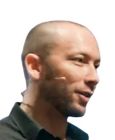Philosophy
Living Like You’re Already Dead?
The bardo as a guide to good living.
Posted November 28, 2023 Reviewed by Tyler Woods
Key points
- The books of the dead, and in particular bardo states, have much to teach us.
- The core idea is that many of our biggest challenges are thoughts that we create ourselves.
- Ancient wisdom often involves coming to terms with one's projections.
I recently had the pleasure of reading The American Book of the Dead by E. J. Gold. It is a rather remarkable book. Like other so-called “books of the dead” (the Egyptian and Tibetan, for example), it is a kind of travel guide for the afterlife. It assumes, like those other books, that traveling to such a place (viewed as a middle-world between life and death, called a “bardo”) is a dead certainty, if you'll pardon the pun. And, similarly, it claims to know something of the architecture of that afterlife, which can only occur by some pioneering souls remembering what they saw there and bringing the information back with them.
The motivation of these books is to make sure you are prepared ahead of time, so as not to become lost or overwhelmed by the experience, which will be completely unexpected for most—especially in our era of materialist atheism, which conditions folks to expect a complete cessation of their being. This is especially problematic since, according to such books, most will not even realise they have died because the experience presents as a simulacrum of their old world, albeit with dream-like qualities.
I urge all to read Gold’s book, and the other books of the dead, whether one believes in the afterlife or not and whether one is now in such a "bardo world" or not (after all, we may be always in one of the afterlife realms). It is nonetheless useful if only for gaining an increase in one’s levels of consciousness and lucidity. It forces one to consider the scenes one is faced with, especially the more grizzly ones, as potential projections (materialised thought forms or “tulpas” in the language of the Tibetan book). Particularly important is the idea that what you might be experiencing is not necessarily the universal experience of all. This opens up the potential that one might choose, by an act of the will or by mind control, to change the experience, perhaps through simple acts of acceptance and love.
Viewed in this way, we can take the bardo state as simply "business as usual," only with greater awareness of the transitions between states that are found to be always in process anyway, like a phase shifting between worlds in a multiverse. Shifting from a present moment to a subsequent one is a movement from a kind of life to the afterlife. Each shift contains the possibility of interpreting the next moment in infinitely many different ways; as potentially terrible, neutral, or blissful, and all in between.
The difficulty is that the ordinary world is seemingly built in such a way that the self could easily be ignorant that it’s in the bardo. The world is seemingly a realm of distraction, a place of largely self-created misery and suffering. The ordinary world might as well be a bardo. It is a place characterised by Heraclitus’ famous dictum that “change is the only constant.” However, that is not quite right, and what is important to remember as this flux washes over us, with its “good” and “bad” elements, is that there is a continuing presence (often called “I AM-ness”) that the flux moves relative to, and must do so so that such change be coherent (change requires a stable point against which it is defined). That is the stable core of what you are, and yet it is a kind of nothing: it exists nowhere and nowhen, since like other properties (happy, warm, fearful, wealthy, poor, etc.), these indexical “here” and “now” features also are in flux and make sense only relative to some such presence or awareness.
Mea Tulpa!
If this is a bardo, then we find that Beethoven and Bach are available to sample here. Great art and great people are here. Great vistas of nature and opportunities for experiencing nurture are here. This is a crucial point. There are elements, even in lower bardo realms, that serve to remind us of what we are and where we can head if we change our mental perspective. If one can "awaken" in the bardo (in this world) then one is essentially like Orpheus breaking into hell (interestingly, Orpheus was, in Greek, a bardos or poet, writing experiences as he saw fit). Like Orpheus, we can use our lucidity to illuminate others' experiences here and make their (and our own) time here more fruitful and joyous. We can turn hell realms into heavenly palaces. The alternative is bleak: This is the grave. We are corpses, in a constant state of decay, fighting entropy.
There is hermetic wisdom in the books of the dead: The world you experience is you (or a mirror of your internal states), or a consequence of your actions and thoughts. The way out of bardo is to recognise this. There is more than a dash of Gnosticism about this too, though in this case, the terrible captor imprisoning you is not an evil demiurge but your own mind, punishing itself for its karmic indiscretions. You must become your own teacher. You must learn how to observe your own mental states, rather than drowning in them, and realise that you are not these various mental states being presented to you and have a choice in how you react to them. This is why meditation is presented as part and parcel of surviving in the bardo since it provides exactly the mental control necessary to become lucid enough to detach from transient phenomena and remain poised.
The ancient Eleusinian Mysteries knew the power of bardo-like experiences, presenting an experience of "dying before dying" to reveal how much is in your mind and to learn to not be scared and lose control in difficult times. It provided an underworld journey, an initiation, in which one battled with mythical beasts of one's own making. What you expect is what you get. What you fear is what you get.
Why is this relevant in general? Because what goes for the bardo always goes in general: The majority of your fears are self-made. If you can manage to change your internal state, by making friends with your fears and treating them as teachers on the path to wisdom, then you will do fine. As the great stoic philosopher Epictetus pointed out, humans are not worried by real problems so much as by their own imagination about them; this is what anxiety amounts to, namely being troubled in the mind. By learning to face the demonic inhabitants of the bardo right now in this life as part of a meditative practice, and by learning to recognise your contributions to the world you experience by always allowing for the possibility that this is already a bardo, you can benefit not only here but also in any life beyond. Think of it as a Pascalian Wager: What do you have to lose if there is no such bardo beyond this life?
There is much wisdom in these older traditions that we seem to have forgotten. One sees a world of individuals caught up in their projections, not realising that they are in some ways occupying their very own universe, and fighting against themselves. The external divisions, into factions of good and evil, us and them, reflect an inner duality. To bring the world back into peace and harmony, the first step must always be to achieve balance in yourself because the two worlds (the inner and outer) are simply different ways of experiencing the same thing. However, the outer world of experience runs on duality and division to be an object fit for an experiencing mind. There is nothing wrong with this, and with duality and even illusion, so long as one puts it in its proper place as a kind of dream.
One can wake up in a dream (become lucid), of course, and I would view that as the proper goal for humanity, rather than escaping to some non-dual nirvana. It is in our power to make sure the collective dream does not become a nightmare by having as many of us as lucid as possible.




